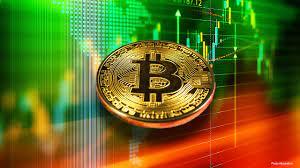Inbound Marketing Week took place last week, and so we wanted to share a few ideas we had for event organisers while attending one of the events and hosting another.
However before we jump into the key learnings, let’s quickly ask ‘What is inbound marketing’ and ‘why should I – as an event organiser – care about it?’
What is inbound marketing?
Inbound marketing is defined by Hubspot – who’s co-founder and CEO Brian Halligan coined the term back in 2005 – as simply:
“The best way to turn strangers into customers and promoters of your business.”
Or for a more tactical definition we can turn to Wikipedia which says that: “Inbound marketing is promoting a company through blogs, podcasts, video, eBooks, enewsletters, whitepapers, SEO, social media marketing, and other forms of content marketing which serve to bring customers in closer to the brand.”
In essence, it’s about creating value around the event you run. that will help potential customers discover you, without needing to buy lists, display ads or cold call them.
Why is inbound marketing important for events?
Inbound marketing is important because it means you don’t have to spend your budget on buying lists, display ads or sales reps. Instead, you can invest in creating additional content that adds value to your event – and the lives of your potential customers – helping you increase attendance in a more cost-effective way. Take a look at some of these stats:
- Content Marketing Institute recently reported that 80% of business decision-makers prefer to get company information in a series of articles versus in an advertisement.
- Inbound marketing delivers 54% more leads into the marketing funnel than traditional outbound leads.
- Better yet, according to Search Engine Journal, inbound leads cost 60% less than outbound leads.
- According to Social Media B2B, inbound marketing works well for B2B companies too, as those that blog generate 67% more leads per month than those that don’t.
Want to learn how you can take advantage of inbound marketing for you event? Take a look at the eBook “The New Age of Event Marketing” written by Eventbrite and Hubspot to help you grow and promote your events!
CLICK TO TWEET
Now, onto the lessons from Inbound Marketing Week…
1. Great inbound marketing starts with your customers
The key to really strong inbound marketing is understanding your customers, so you know how to effectively target them with content they’ll love, through channels they frequent.
One of the most effective ways to help you really get to the heart of your customers is through buyer personas, which are like ‘ideal customer templates’ that describe what challenges they face, what opportunities they have and the context in which they work (e.g. large company or small, international or local, B2B or B2C).
For more info on buyer personas and how they can help your inbound marketing efforts, take a look at some of this information provided by Hubspot.
2. Social distribution continues to grow in importance
We’ve already reported on the power of social media for events (see our Social Commerce Report) and this was echoed at the inbound events that we attended, as everyone continued to talk about the importance of community engagement, which is made easier and more scalable through social media.
If you’re starting to create great content and want to use it to build awareness of your events, then the best (free) channel is still going to be via your social channels and any ‘industry influencers’ you have relationships with on them.
Here are a few tips on how to maximise these channels to promote your events.
3. Good content is only part of the equation
One of our key take-aways from IMW was the importance of distribution to any inbound marketing activity. Creating good content is still essential, but only a few very exceptional outliers will have their content spread virally, without the backing of a solid distribution plan to get it out into the world.
This also means paid distribution will become a more frequent element of inbound marketing, and when money is involved, it will become even more important to track your spend and understand what is working.
That’s why from Google Analytics integration to more complex reports for multiple events and custom link tracking, Eventbrite is built to help you learn what works!
4. There’s a huge opportunity for events!
Probably the biggest thing we came away with was a belief that events are in a great position to benefit from inbound marketing.
Events are inherently content businesses, selling an experience to passionate and informed customers. With some help, we think the events industry could become leaders in the practice of inbound marketing and enjoy big benefits and growth in the process.
That’s why we’ll be covering more on inbound marketing in the next few weeks so keep checking back, sign up for blog updates here and follow us on twitter!
If you enjoyed this, you should definitely check out our new eBook “The New Age of Event Marketing” written by Eventbrite and Hubspot to help you grow and promote your events!





